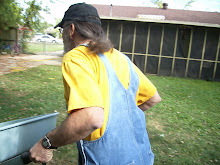“Eleazar. A word with you, if you will.” Eleazar turned to see the Gittite Philistine, Ittai, standing to the side, somewhat apart from the Israelite warriors. His dark visage marked with scars gotten in battle, Ittai’s jet-black hair was streaked with gray. The man’s eyes told an experienced observer that he had seen much of bloodshed and death. All this, Eleazar took in at a glance before he spoke.
“What might I do for you, Ittai?” The tone was formal, as between respected enemies. Though these two were acquainted from Eleazar’s time in Gath, under David’s leadership, the old barriers of enmity between the two nations were too strong to be easily breached.
“I wanted to say that I am pleased that my men and I have been given the position of greatest importance in the coming battle, and pleased, as well, that The Three will be fighting beside us.”
“ Thank you. You have spoken truly of the importance of our assignment. If we fail to hold, it will be we who are being chased through the thickets of Ephraim’s Wood, rather than Absalom and his troops,” Eleazar replied. Ittai smiled at this.
“We will hold,” Ittai asserted. Eleazar nodded in agreement. There was no alternative to victory for the men who followed David.
“I remember another battle,” Ittai spoke thoughtfully, “and three warriors who would not yield or be pushed back, men who would not be defeated and would not die.”
Once again, Eleazar nodded, then stood in silence for the other to finish speaking. What a pity, he thought, that old hatreds are so slow to die. I too, recall battles long past.
“It was at Pas Dammin,” Ittai continued. “The flower of Philistia’s fighting men died on that slope.”
Of course he would have been there, reflected Eleazar; it was the last chance for the Five Cities to defeat David. Every Philistine who was able to stand upright and grip a sword would have been there that day.
“Never have I seen men fight as you three fought that day,” Ittai shook his head in wonder. “I had met you, of course, at Gath, when David served Aschish for a while, but I had supposed that these tales of the mighty exploits of David’s Three were exagerations, as such stories often are.”
“You were there.” Eleazar’s words were more a statement of fact than a question.
“I have seen men kill out of hatred, or in the lust of battle, but this was different; there was a purity about it. I have wondered since what spirit animated you.”
“It was said of Samson that the ‘Spirit of the Lord’ came upon him when he performed his feats of valor and strength,” Eleazar spoke, his brow knitted in thought. “I’ve wondered, many times, does the God who gives life give to some the ability to take life; sometimes in spectacular fashion?”
“It is believed among my people that the gods give favor to men to become great warriors; that the slaughter they wreak glorifies these gods somehow.”
Eleazar pondered these words for a moment, reflecting on his life as a soldier of Israel, and the lives of his comrades, and the death they had inflicted.
“A cult of death, wouldn’t you say?”
“Exactly,” Ittai nodded. “Yet on that day, at Pas Dammin, Dagon could not help us, in spite of the vast preponderance of numbers, to overcome three men. You three faced the armed might of Philistia and heaped up the dead around you.”
Eleazar gazed at Ittai in fascination, never having been privileged to hear, in such a manner, the thoughts of an enemy. Who am I, O Lord, he wondered, to be chosen to live when so many have fallen round about me.
“The death of Goliath was shocking, but the gods withdraw their favor, sometimes, from even the most fearsome warriors. Pas Dammin, however, made me wonder: is there really any credence to this Yahweh of yours? What or who upheld you? How could not even one sword stroke from hundreds of swords have wounded you, or one arrow from hundreds launched not have pierced you? Eleazar, tell me how three men triumphed over thousands.”
“Our God lives. He alone gives strength and courage, on the day of battle. This I know, though I cannot say how. My hand remained frozen to the hilt of my sword after that battle. I could not release it, even though I tried. I have longed to release the sword, since then, but I cannot.”
“It has been said,” spoke Ittai, “that he who takes up the sword will die by the sword. There is truth in this, perhaps?”
“It is God who has put the sword into my hand and given me skill to use it. One day, I will lay it down, and God alone knows whether that will be in death, on a battlefield somewhere, or whether it will hang, rusting, as I live out my life and die in my bed, old and full of years.”
“I have thought about that day often. When I die, I would have the end come while I make my stand in battle, covering myself in glory as you did at Pas Dammin.”
“And when I die, I would have the angel of death find me in bed, in my wife’s embrace,” Eleazar remarked with a smile. Ittai laughed again, and Eleazar joined him.
Subscribe to:
Post Comments (Atom)

No comments:
Post a Comment